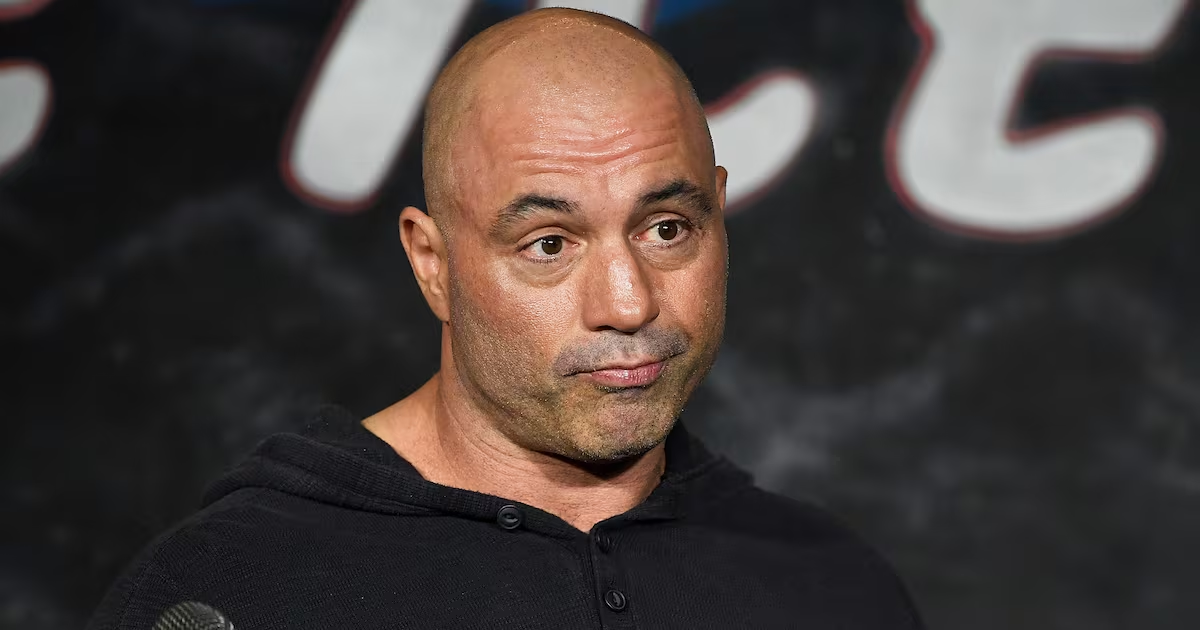Conservative talk radio executive Lee Habeeb sounds positively wistful as he recalls a time—long ago and far away, if it ever existed at all—when Americans of opposing political persuasions could speak to one another other without rancor or resentment.
“There used to be a day when Americans were allowed to talk to each other and have fun together,” Habeeb told The Daily Beast. “And it wore on me. It really wore on me” that such civilized discourse hardly happened anymore. “And I said, what would a show sound like if we just told stories about stuff that Americans care about and love? No griping, no anger, no wedge issues, no fighting.”
His answer, as it turned out, is Our American Stories, which Habeeb describes as “a big national storytelling show that talks about the stuff that brings people together. We don’t identify as conservative because there are people in our staff who aren’t. We don’t talk about Donald Trump or Barack Obama. We don’t do politics.”
The nightly two-hour show, which is carried on nearly 200 radio stations nationwide and boasts an estimated audience of 1.3 million, might not identify as ideological or political, at least not overtly.
But Habeeb has clearly positioned it as a right-of-center alternative to NPR, whose programs such as Morning Edition and All Things Considered also emphasize skillful story-telling, but which many conservatives perceive, rightly or not, as inhospitable to anything that isn’t progressive or politically correct.
By contrast, Michael Harrison, publisher of the talk radio bible Talkers magazine, calls Our American Stories—in a compilation of testimonials that Habeeb sends to reporters, station managers and potential advertisers—“conservative news/talk’s knock-out answer to public radio.” (NPR’s media relations staff didn’t respond to requests for comment.)
“It’s got that NPR level of classiness, and it doesn’t throw bombs, seek sensationalism or take a negative partisan tone,” Harrison told The Daily Beast. “It’s conservative, it’s really good across-the-board family programming, but it doesn’t have a political agenda. It’s not political or partisan, it’s not conservative in terms of Republican versus Democrat, it’s conservative in its values. It’s pro-America.”
So far, Habeeb insists he harbors no ambitions to make Our American Stories the launching pad for a conservative radio news network that could compete head to head with NPR. “We’d love to take this show and make it the biggest show in the country,” he said. “I’d rather have what Oprah had—one big show.”
Yet retired UCLA history professor Roger McGrath, a noted expert on the Old West and one of the more prolific contributors to Our American Stories,” with pieces on such iconic figures as outlaw Jesse James and “Gold Rush Queen” Nellie Cashman, sees the program as a potential antidote to “cultural Marxism,” which he defines as “another form of political correctness.”
“Nothing about it is designed or contrived to comport with any political agenda,” McGrath said about the radio show. “However, because so much of what is traditional America has been discarded or ignored, you might say that just the fact that we look at these heroic figures that we all cherished in earlier generations, perhaps that could be perceived as right-of-center.”
McGrath, a self-described “conservative libertarian,” added: “The fact that so much of what we hold dear as Americans is attacked, destroyed, degraded, and devalued—since these represent the traditional perspective, it might not conform to the cultural Marxist of today.”
Still, whatever the subliminal ideological impact of Our American Stories, it avoids the sort of tendentious polemical fireworks that define conservative talk radio circa 2019.
Local radio station execs, meanwhile, say they like the program’s “pro-American” sensibility, as Des Moines, Iowa, station WHO-AM’s program director Michael Dorwart put it. “I don’t see it as political,” said Dorwart, whose station, in the early 1930s, featured the storytelling chops of a young aspiring actor named Ronald Reagan. “I see it as a positive, extremely well-produced, engaging program that fits our station particularly well.”
Station manager Charlie Ochs of WHFS-AM in Tampa, Florida, said in his testimonial: “It is rare to hear a positive talk show but Lee Habeeb consistently delivers uplifting and interesting stories. His show is like taking a deep, cleansing breath.”
Habeeb told The Daily Beast: “If you want to say it comes from a conservative-values space, I would more accurately say it comes from a classic-American-values space: hard work, personal responsibility, self-sufficiency… And yes, some of the curators happen to be conservative, and some of us happen to be Christian. There should be more of that in the media. The newsrooms should have more conservatives and more Christians. And in that respect it comes off feeling that maybe those are stories you might not have heard on CBS News. And that’s a good thing.”
For the past three years from production facilities in Oxford, Mississippi, where Habeeb lives with his wife and daughter, he and a dozen staffers (not counting paid contributors and contractors elsewhere around the country) have been producing the nightly two-hour show that currently reaches listeners from Los Angeles to Philadelphia to Miami—with plans for the show to be carried by next year on stations in New York, Chicago and Dallas.
The program is produced by a tax free nonprofit that Habeeb established in 2014, American Private Radio, which is supported largely by charitable donations (a cumulative $3.3 million in tax years 2015 and 2016, as reflected on APR’s publicly available 990 forms).
The program has begun to share advertising revenue with the local stations (three minutes of commercial time per hour, vs. five minutes for the stations). Habeeb, however, refused to discuss his financial backers.
“Donors have a right to privacy. I respect it,” he said in an email, citing several court decisions that protect the anonymity of donors to nonprofits. “They like the stories, which are positive, and love that we tell stories about American history, about people like Steinway [the piano maker] and US Grant [the Civil War general and president] and so on…I am waiting to see if you take a deep dive on such matters about Pro Publica and the host of left wing non-profits that arise, and will you be scouring the 990's of those institutions?”
While Habeeb declined to characterize APR’s financial support, the nonprofit paid $27,016 in 2016 for the services of McKenna & Associates LLC, a well-known Republican political fundraising firm based in Arlington, Virginia. APR pays Habeeb, its president and CEO, $120,000 annually, according to the tax filing.
Habeeb, who serves as the host of Our American Stories, estimates that he and his team have so far created 1,100 hours of programming.
The shows are deliberately divorced from the 24/7 news cycle and hot-button issues like same-sex marriage, abortion rights, North Korea, impeachment, security clearances, and illegal immigration. Instead, recent installments have chronicled the unlikely rise to stardom of diva Barbra Streisand, the making of the mockumentary This Is Spinal Tap, the inspiring lives of football legends Vince Lombardi and Bear Bryant, the biography of piano maker Henry Steinway, and the rags-to-riches saga of digital marketing entrepreneur Gary Vaynerchuk.
Conservative Never-Trumper and baseball fanatic George Will, meanwhile, has contributed a couple of pieces celebrating America’s pastime, including a lengthy tribute to the late star center-fielder Curt Flood, an African-American who risked his career to fight for free-agency for his fellow ballplayers.
“I just believe Americans get along a lot better than the media says,” Habeeb mused. “There’s one media bias that’s prevalent—it’s conflict, and for conflict’s sake. We try to be the conflict-free zone… What’s also necessary is for the media to create spaces for people to not argue.”
Yet the 58-year-old Habeeb has arguably contributed to the venomous media zeitgeist—at least from the right-wing side of the equation—that he now decries.
As the executive producer of his University of Virginia law school classmate Laura Ingraham’s radio program from 2001 to 2008, and as the longtime vice president of content for the Salem Radio Network, which recently added glibly acerbic Donald Trump acolyte Sebastian Gorka to its roster of conservative hosts, Habeeb has possibly helped encourage divisiveness in the body politic.
During the 2008 presidential campaign, for instance, he collaborated on a YouTube video mashup that conflated Barack and Michelle Obama with the incendiary critiques of Jeremiah Wright and Malcolm X, the raised-fist black power salutes of Olympic medal-winners Tommie Smith and John Carlos, and Public Enemy’s rap anthem “Fight the Power.”
As Habeeb explained to Politico at the time, “I believe he [Obama] is hiding his Marxism from the American people,"although the producer was at pains to add: “I didn’t do this to make him like a scary black man.”
More than a decade later, Habeeb is still smarting from the episode.
“I have a conservative hat. But then I have a human hat,” he said. “I’m trying to put on my human hat.”






